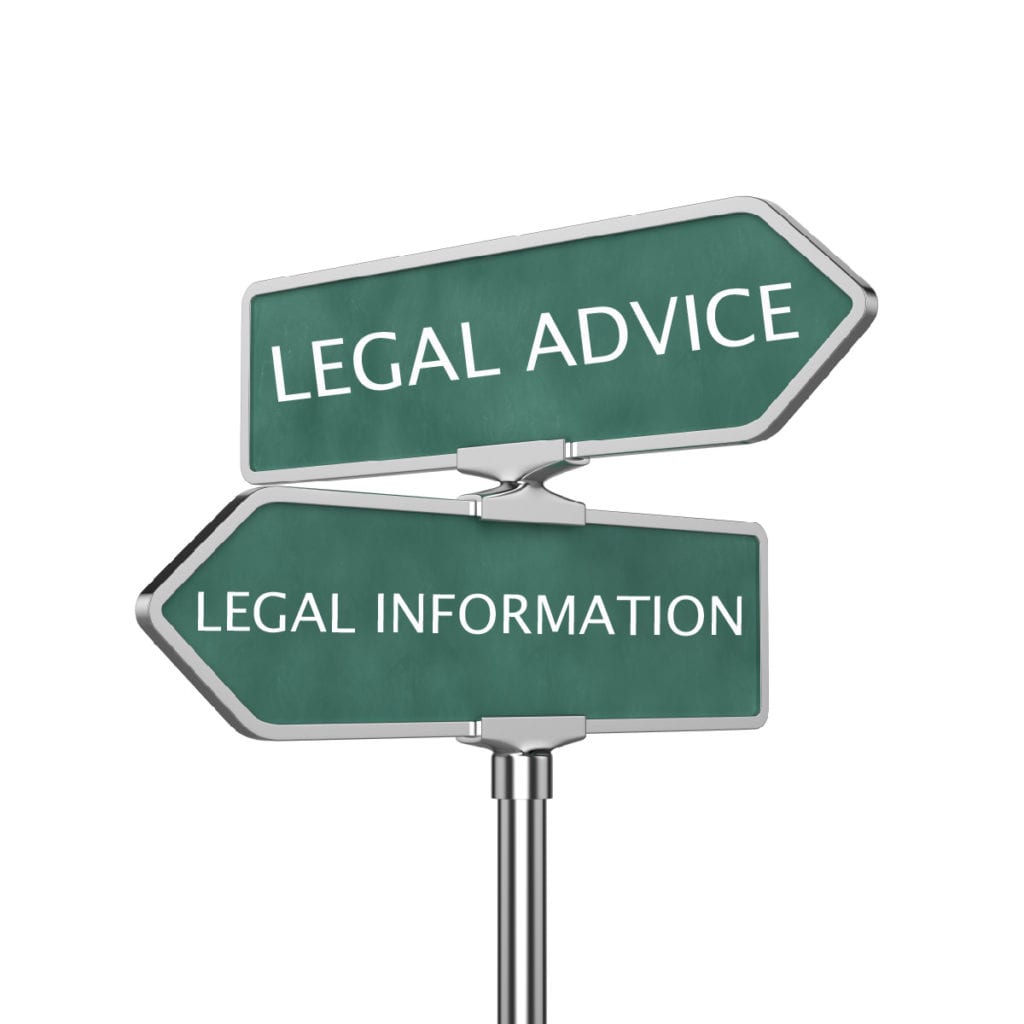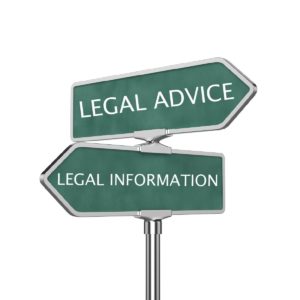Lawyers are allowed to give general answers to legal questions posed by laypeople on social media, chat rooms, blogs, websites, and other internet platforms. That said, lawyers should not provide specific legal advice, because those communications may inadvertently create an attorney-client relationship.
One ethics opinion has held that “answering questions on the Internet is analogous to writing for publication on legal topics. Thus, lawyers may ethically answer questions posted by laypeople in chat rooms and other forums, so long as the lawyer is not providing legal advice. (New York Op. 899).
Likewise, answers to “frequently asked questions” on a law firm’s website are ok if the information is accurate and includes a statement that they do not constitute legal advice and should not be relied upon to solve individual problems. (Vermont Advisory Ethics Op. 2000-04)
What is the distinction between legal advice and legal information?
Two ethics opinions shed light on the legal advice versus legal information question.
With respect to context, lawyers who speak to groups generally have been characterized as offering only general legal information. With respect to content, lawyers who answer fact-specific legal questions may be characterized as offering personal legal advice, especially if the lawyer is responding to a question that can reasonably be understood to refer to the questioner’s individual circumstances.
What can lawyers do?
1) Don’t give specific legal advice.
2) Include a disclaimer.
The ABA suggests that, to avoid misunderstanding and inadvertently forming attorney-client relationships, lawyers who provide general legal information (in social media posts, law firm websites, Avvo answers, etc) should include statements warning readers that the information is general in nature and should not be relied upon as legal advice, because “legal advice cannot be given without full consideration of all relevant information relating to the [reader’s] individual situation.”
The DC Bar similarly states that, when providing legal information, “lawyers should be careful to emphasize that it is intended as general information only, which may or may not be applicable to an individual’s specific situation.”







